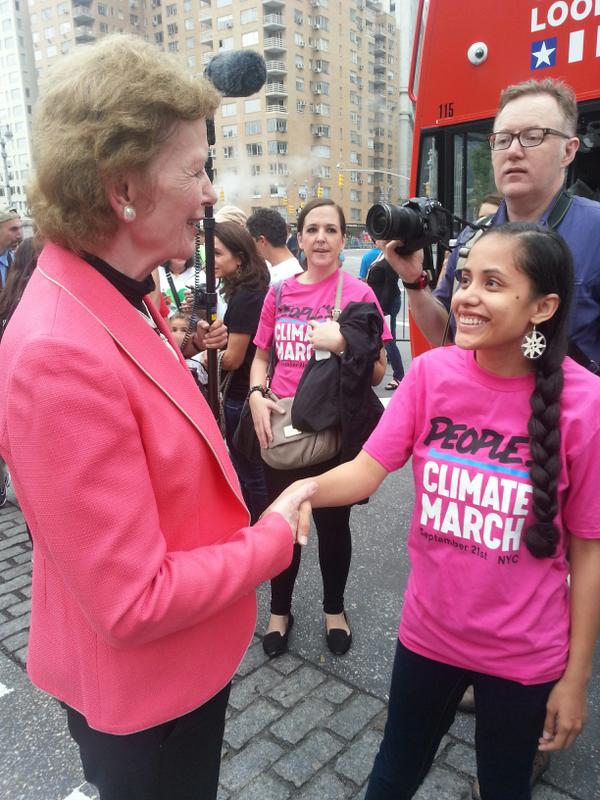Mary Robinson welcomes Open Letter of 28 independent human rights experts to Governments
Today, 17 October 2014, the protection of the human rights of the most vulnerable people in our climate disrupted world has been highlighted as 28 United Nations human rights experts released a call to Parties to the United Nations Framework Convention on Climate Change (UNFCCC) “to include language in the 2015 climate agreement that provides that the Parties shall, in all climate change related actions, respect, protect, promote and fulfil human rights for all”.
I applaud the joint initiative of 28 Special Procedures mandate-holders of the Human Rights Council to remind all Governments negotiating a climate agreement under the UNFCCC, of their solemn human rights obligations. It is significant that these independent human rights experts urge Governments to take action that is founded in the Universal Declaration of Human Rights; taking climate action that protects and respects human rights will realise a fair and sustainable future for people all over the world.
I believe that climate change is the biggest threat to human rights in the 21st Century. The human rights of people, be they vulnerable people in the Marshall Islands, Manila or Miami are threatened by the impacts of climate change. Human rights provide both a motivation for urgent climate action and a yardstick for mitigation and adaptation actions that realise rights and sustainable development.
Related Links
Read the Open Letter Signed by 28 UN human rights experts
Watch and Listen to Kathy Jetnil-Kijiner’s intervention at the Climate Summit 2014
Incorporating Human Rights into Climate Action
The research summarised in this booklet is the product of an extensive survey conducted by the Foundation to assess the extent to which countries are respecting human rights in climate action. The research examined all National Communications submitted to the UNFCCC since 2010 along with any National Adaptation Plans of Action (NAPAs) submitted by Least Developed Countries (LDCs) over the same period. To further understand the landscape of human rights and climate change, the research also considered reports to the Universal Periodic Review (UPR) of the Human Rights Council (HRC) since 2010.


